
Photo courtesy of Tambopata Macaw Project Facebook Page
I met Annie while volunteering at the Tambopata Research Center in the Amazon jungles of Peru and was to be her roommate for the duration of my stay.
I was worried that I’d be cramping her style by moving in to the room she had enjoyed by herself but she immediately helped get me set up.
Every morning the alarm went off at 4:30am, just before the howler monkeys started up their thunderous wind-storm-like territorial roars.
We would lie motionless in our mosquito-net-enshrouded beds listening for rain. If there was no rain, or just a drizzle, we had to get up and get to the boats to start the days work.
One morning, it had been down pouring on and off up until the alarm. The alarm went off and we listened for the boss, Gustavo’s voice indicating if we had to get up to work or not. We were tired and secretly hoped we could go back to bed and sleep in until 7:30am breakfast.
“Andele!” Gustavo says its a go. Time go get up!
Annie grumbled and started crawling out of her mosquito net.
I didn’t want to get up either, so I put on my sarcastic happy voice and in an overly chipper tone said, “But Annie, isn’t it fun to be out in nature?!”
“I hatechoo…” she sleepy mumbled in an unenthused response.
It was that moment I knew Annie and I would get along great. She is also the perfect young aspiring woman scientist to interview, so let’s begin:
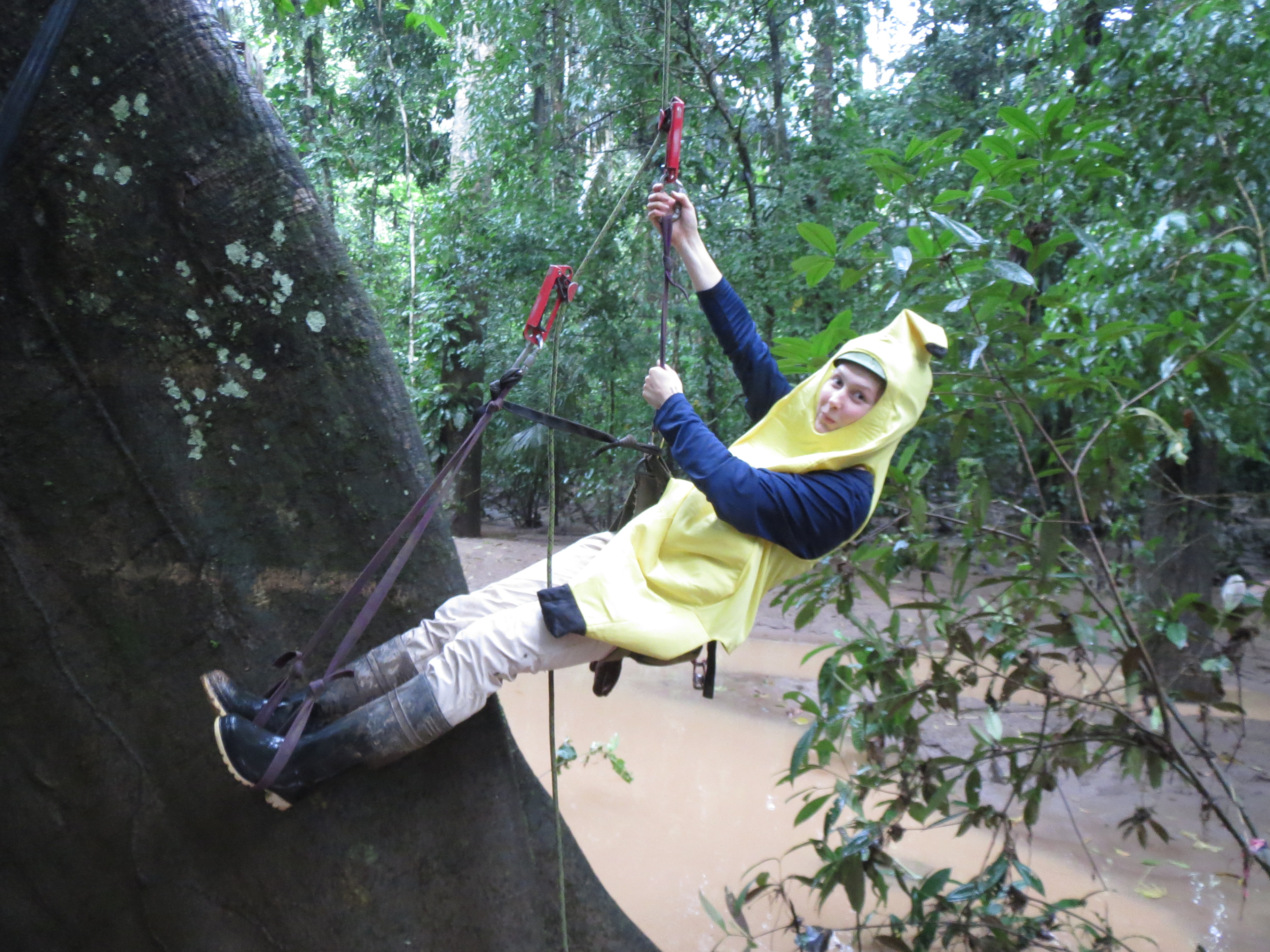
What type of science do you love (if you could categorize the topic e.g., psychology, neurobiology, conservation, wildlife, chemistry, molecular, physiological, etc.)?
I have always loved working with animals and working outside. I really enjoy learning how something fits into it’s environment. Over the years that has lead me to pursue a lot of macrobiology, and I particularly love studying evolution and conservation biology.
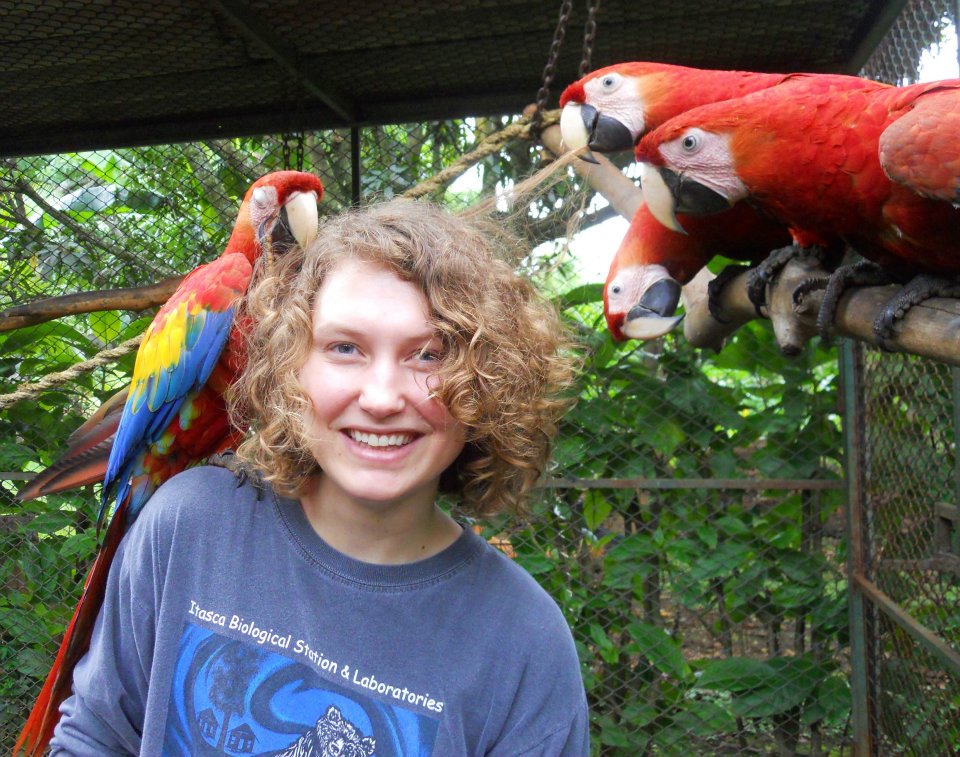
Annie Hawkinson: Head full of blonde curls. No shortage of hairdressers here!
What kind of scientist do you consider yourself?
I consider myself to be a field biologist, because the greatest skill I have developed working in the Amazon is how to deal with a demanding environment. The elements have me at their mercy! For example, at 5:00 in the morning I found myself shoveling mud off an observational site that had been buried from the flooding river.
What is your earliest memory of being hooked by science?
I would say when I got to dissect a shark in 4th grade science class. Being from Minnesota, the ocean is pretty far away and as a kid it seems impossibly far. I think my teacher showed me that it was possible to study something foreign at a really close range and it opened my world.
Who inspired you to go down the path of science?
Indirectly, my parents. They have encouraged me to do whatever makes me happy and since I have always been an animal lover I ended up pursuing biology.
What were some preconceived notions about science or scientists and did that change once you explored your career in it?
I sometimes got intimidated by the belief that “real” scientists have some natural ability making them experts in their work. In reality, although having an intrinsic passion for ones field is beneficial, it takes a lot of hard work, sacrifice, and time to be successful in the science community.
What have been some big compromises or struggles you’ve experienced?
The hardest thing I had to do was accept that this once in a lifetime opportunity I was being offered might end my current relationship. Being in such a remote part of the world for months at a time (with slow and unpredictable internet) has often strained my relationship with my boyfriend, and in general I often feel disconnected from the lives of the people I care about. Thankfully those important people in my life are incredibly supportive, and just a month ago my boyfriend and family came to visit me! They were able to see what I do everyday and why it means so much to me- why I left them! I’m grateful for them in so many ways.
What keeps science FUN for you when you’re feeling the drudgery? Do you ever hate it?
There’s no doubt that it’s challenging working at Tambopata Research Center. The team can go for months without any days off, doing physically demanding work, and sometimes it is absolutely exhausting. I have learned the importance of taking breaks, but when a siesta doesn’t do the trick, I have to remind myself where I am- that I live in one of the last untouched environments on earth. It may take a long time before I truly appreciate the significance of that, but while I can, I think it’s crucial to believe that our work is contributing to the conservation of tambopata. No matter what though, if I’m having a bad day, all I need is to see one if the macaw chicks.
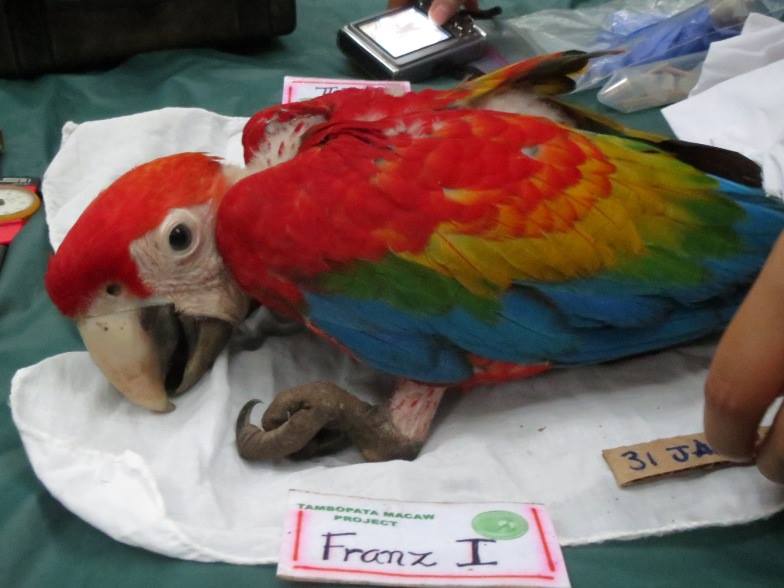
Scarlet Macaw Baby
Do you have any advice you’d tell youngsters? Some key points you wish you knew before you set out?
My advice for anyone interested in working in the field is prepare to fail! I found it really stressful not being able to do everything perfectly when I first started facing setbacks from weather and other complications. Those experiences taught me that failure will happen and all you can do when it does is learn and move on.
Share this:
 by
by 
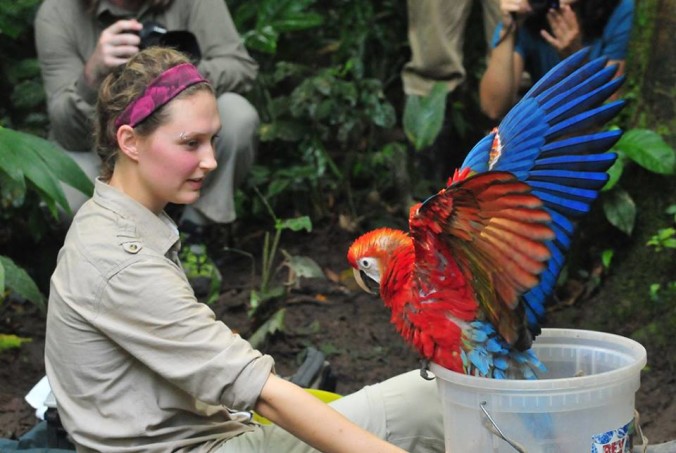



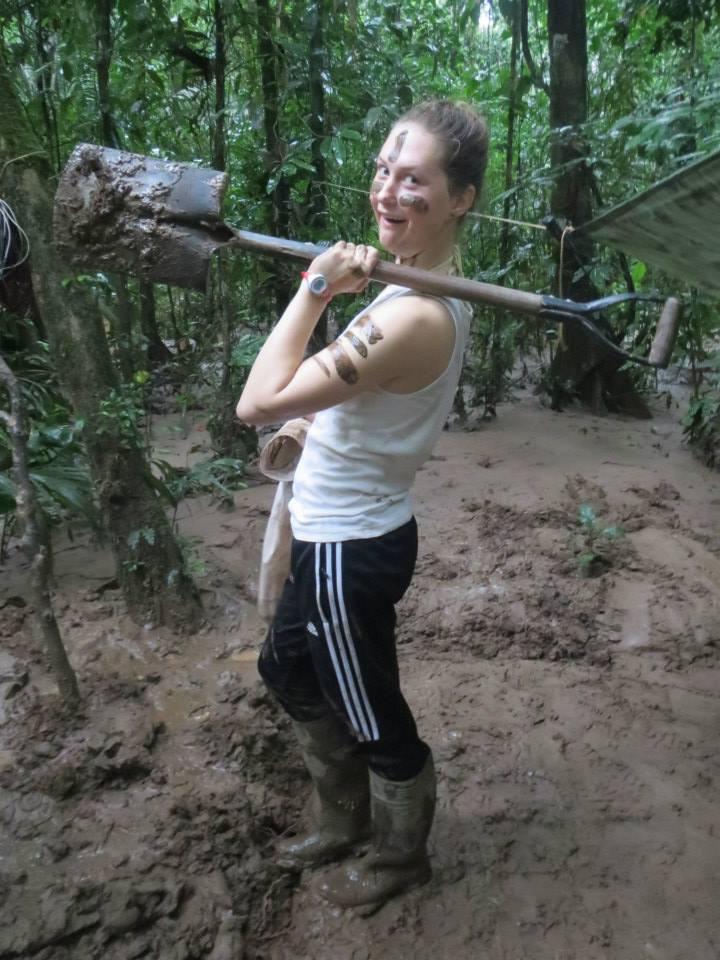
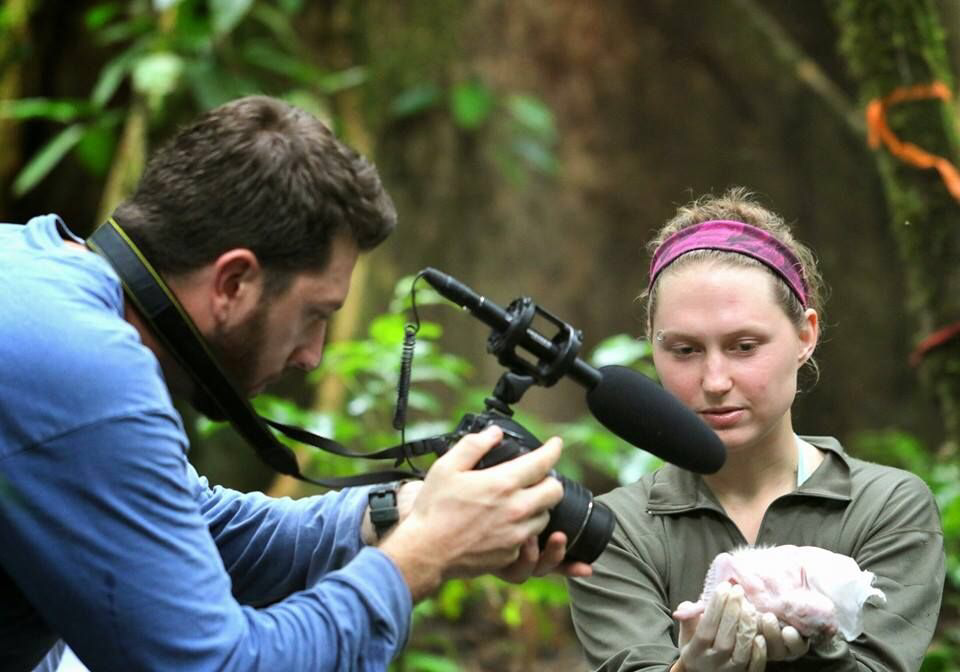
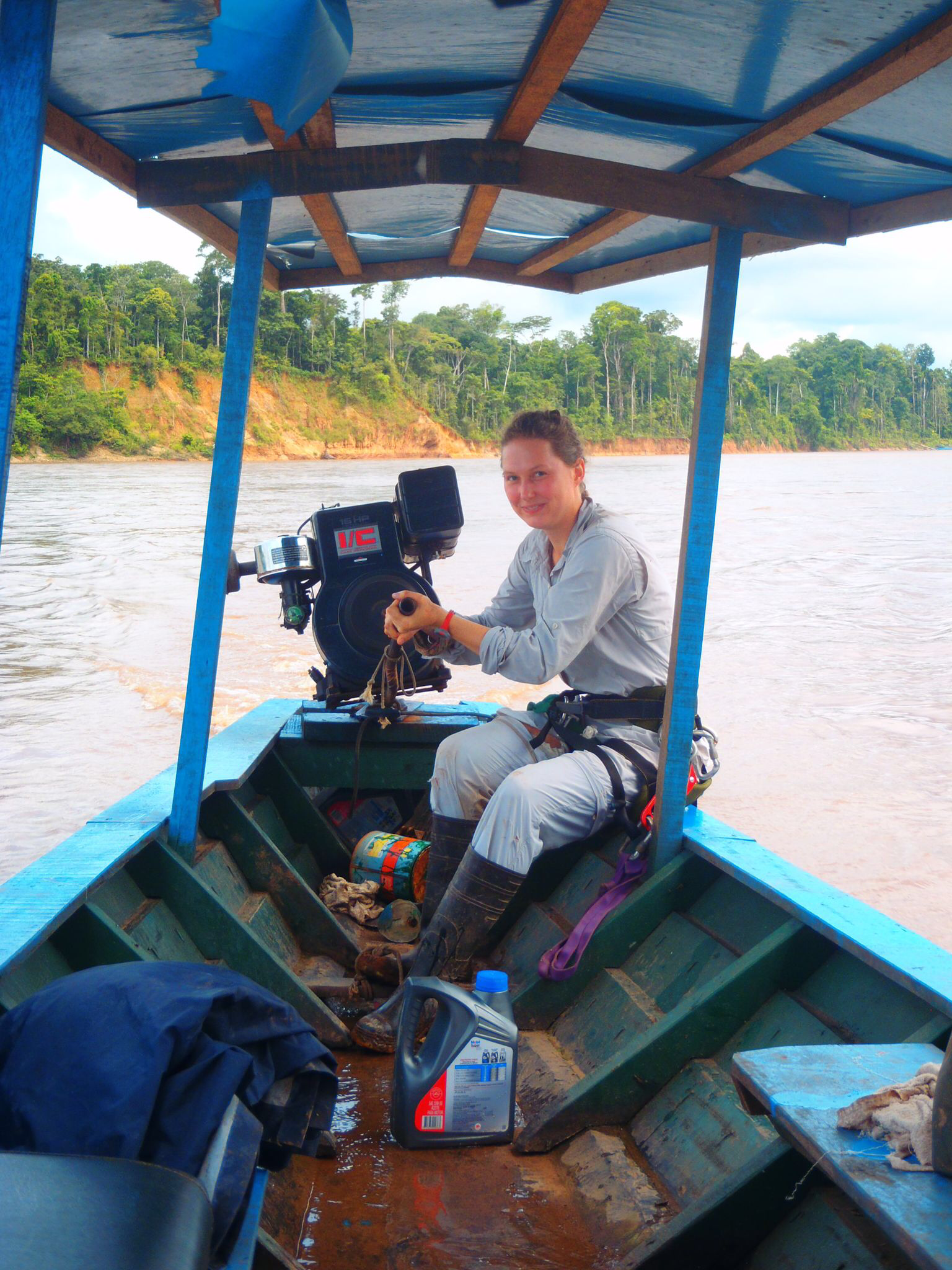
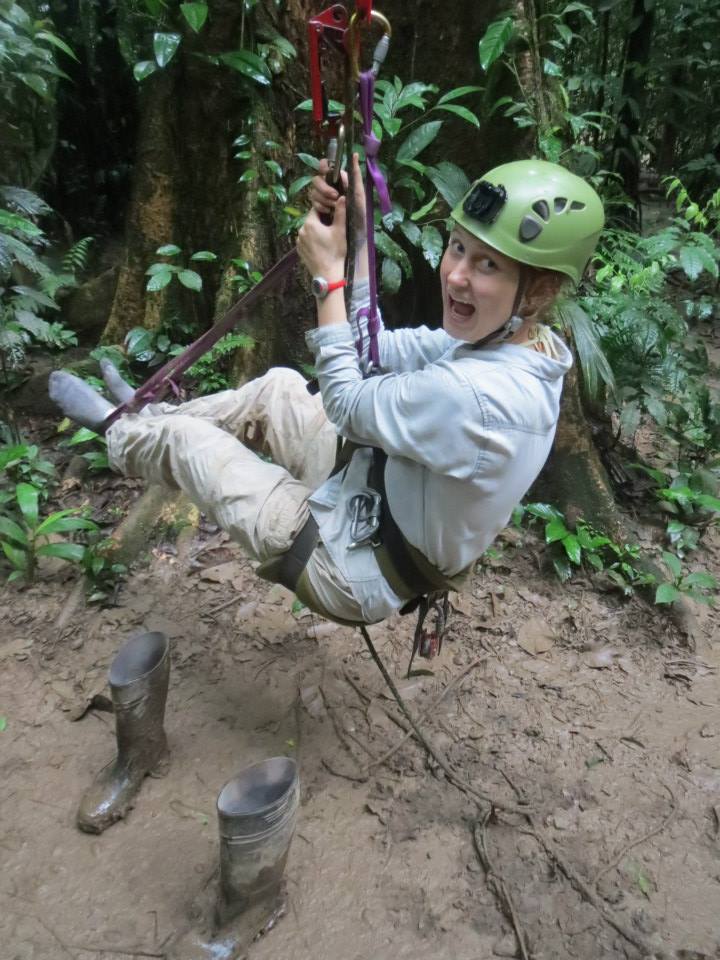
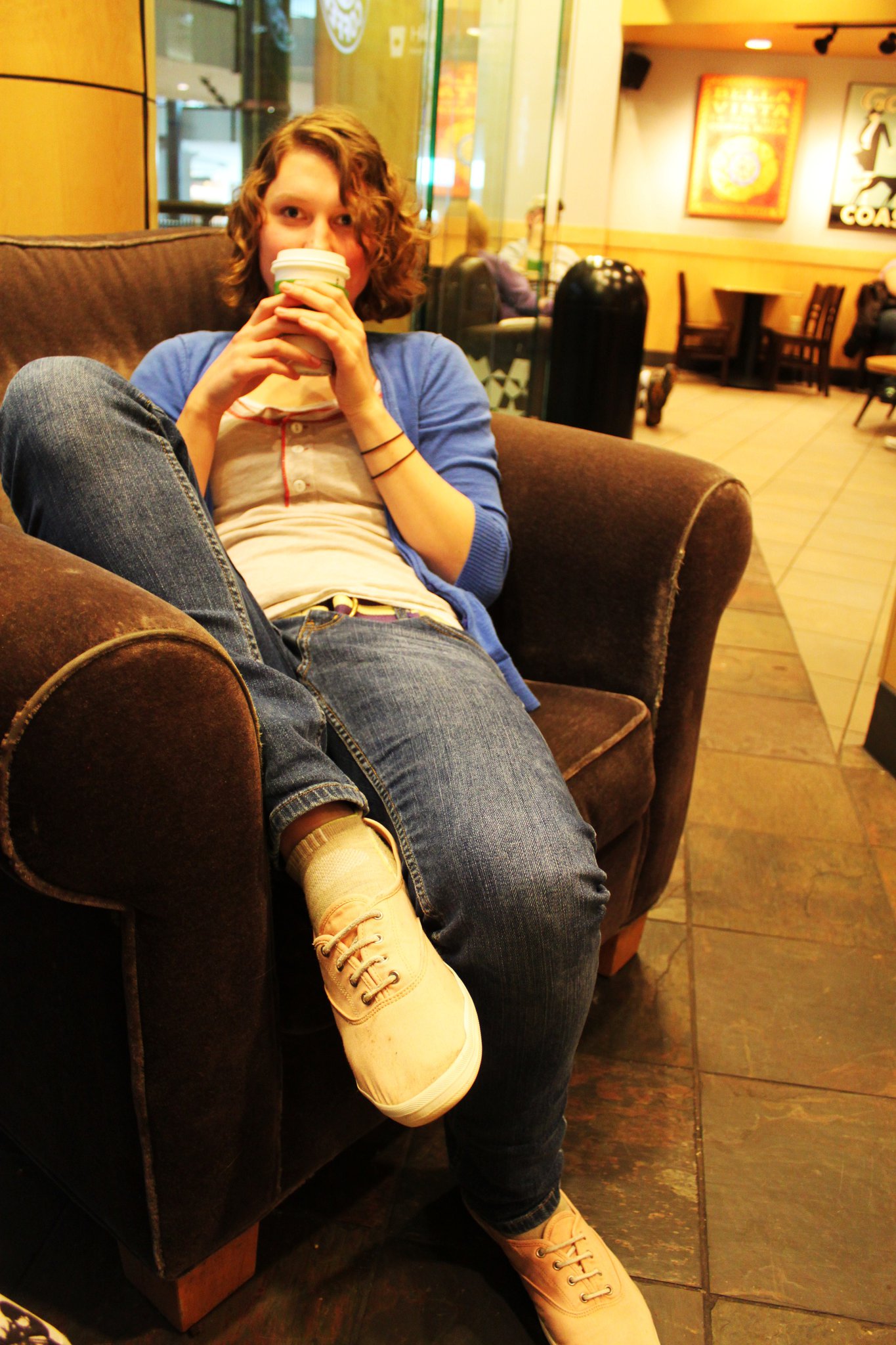

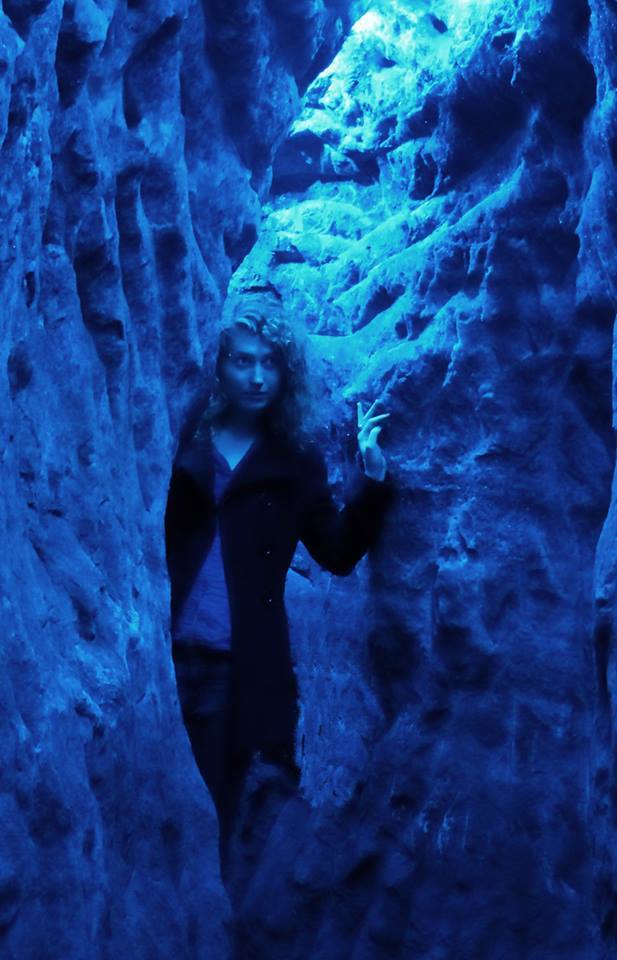






































So proud of Annie and her incredible work with the macaws in the Amazon. (Yes, I’m a relative.) She is an extraordinary role model for other girls and young women interested in a career in the sciences.